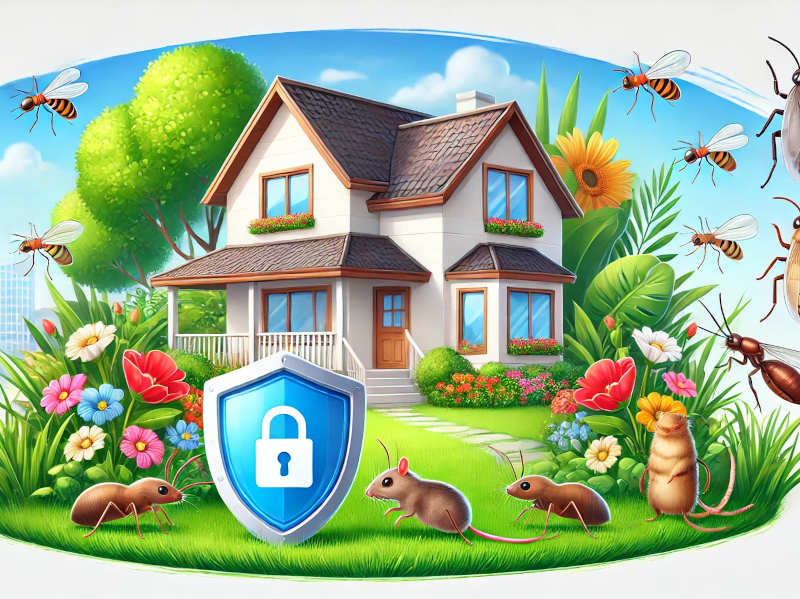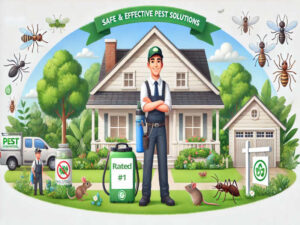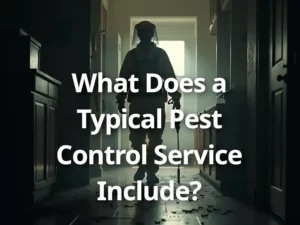The Importance of Regular Pest Control Maintenance

3 minute read time
Imagine waking up to tiny ants marching across your kitchen counter or hearing scurrying sounds in the walls at night. These unsettling experiences highlight why pest control is vital. Regular pest control keeps your home or business safe from infestations, protects health, and preserves property value. Let’s dive into why maintaining pest control matters and how to stay ahead of the problem.
Below we explore the significance of regular pest control maintenance. Proactive pest control offers numerous benefits, including improved health, property protection, peace of mind, and cost savings. Skipping maintenance can lead to infestations that harm your health, damage your property, and stress you out. An effective pest control plan includes regular inspections, scheduled treatments, and eco-friendly methods. While DIY approaches can work in small cases, professional pest control ensures thorough, long-lasting solutions. Maintaining pest control isn’t just about avoiding pests—it’s about securing your home, health, and happiness.
1. Understanding Pest Control Maintenance
Pest control maintenance is a proactive approach to managing pests before they become a problem. It involves scheduled inspections and treatments to prevent common pests like termites, rodents, cockroaches, ants, and bedbugs. Unlike a one-time fix, maintenance focuses on long-term prevention and peace of mind.
2. Benefits of Regular Pest Control Maintenance
Health Benefits
Pests carry diseases that can harm you and your family. Cockroaches spread bacteria like Salmonella, while rodents can carry Hantavirus. Regular pest control removes these risks, ensuring cleaner air and fewer allergens in your home.
Protection of Property
Termites and rodents can chew through wood, wiring, and insulation, causing expensive damage. Proactive pest control stops these pests from wreaking havoc, saving you thousands in repairs.
Peace of Mind
Knowing your space is pest-free reduces stress. No more sleepless nights worrying about infestations or the embarrassment of uninvited critters during gatherings.
Cost-Effectiveness
Preventing infestations is far cheaper than fixing the damage they cause. A small investment in maintenance now saves significant money later.
3. Risks of Skipping Regular Pest Control
Skipping maintenance lets pests gain a foothold. A minor issue can quickly escalate into a full-blown infestation. Pests can destroy belongings, harm your health, and, in commercial settings, ruin your reputation. Avoid these risks by staying consistent with pest control.
4. Components of an Effective Pest Control Maintenance Plan
An effective plan includes regular inspections to spot potential problems early. Treatments should follow a schedule, whether monthly or quarterly, based on your needs. Integrated Pest Management (IPM) combines safe methods like traps and eco-friendly chemicals for lasting results. Homeowners can also contribute by sealing cracks, keeping food stored properly, and maintaining a clean environment.
5. How to Choose a Reliable Pest Control Service
Look for licensed and certified pest control providers with experience in handling your specific issues. Check customer reviews and ensure the company uses eco-friendly solutions. Transparent pricing and clear service guarantees are also must-haves.
6. DIY Pest Control vs. Professional Maintenance
DIY pest control can handle minor problems, but it often falls short against larger infestations. Professionals have tools, training, and expertise to address issues thoroughly. They also provide treatments that last longer, saving you time and hassle in the future.
The Bottom Line…
Regular pest control maintenance is essential for protecting your health, property, and peace of mind. It’s a simple step to ensure your space stays safe and pest-free year-round. Don’t wait until you see the first bug—schedule a professional inspection today to keep pests out for good.







